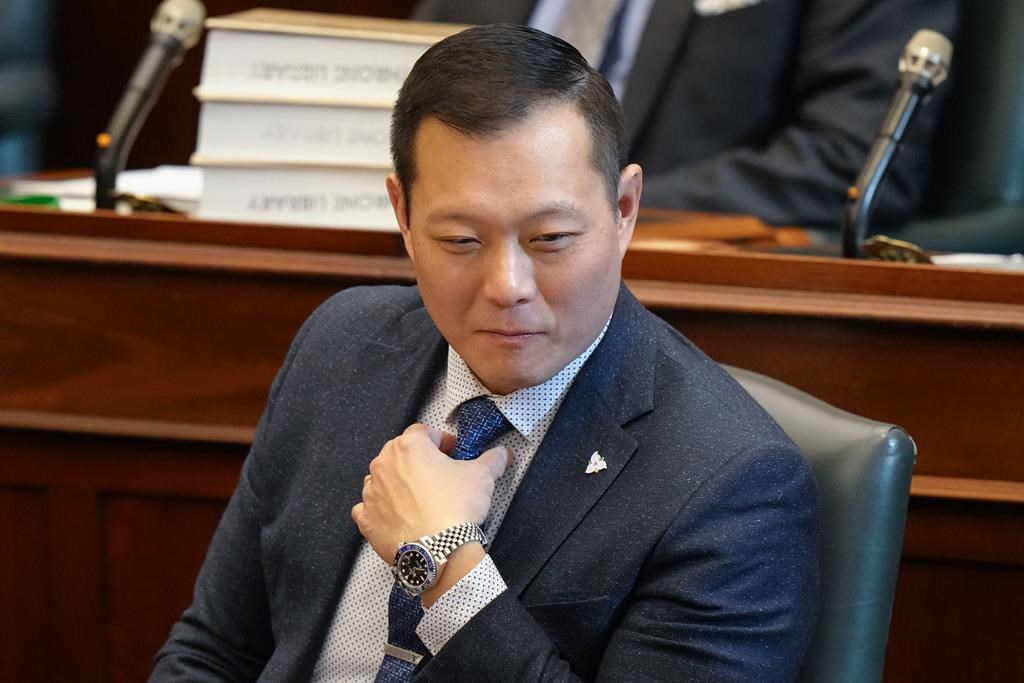TORONTO — Nearly 300 people in Ontario have been moved from hospitals to long-term care homes not of their choosing under a law the government implemented over a year ago.
The law can see those patients placed in homes up to 70 kilometres away — or 150 kilometres if they are in northern Ontario — without their consent and requires hospitals to charge them $400 a day if they refuse the transfer.
It is aimed at moving so-called alternate level of care patients — who can be discharged from hospital but need a long-term care bed and don’t yet have one — in order to free up hospital space.
If there are no spaces available in long-term care homes a patient has put on their preferred list, they can instead be transferred to a home selected by a placement co-ordinator at the hospital.
The Ministry of Long-Term Care has not previously publicly disclosed the numbers of patients moved under those new rules, but Long-Term Care Minister Stan Cho’s office now confirms to The Canadian Press that 293 alternate level of care patients were admitted to homes they didn’t choose between September 2022 and January of this year.
That represents about 1.7 per cent of all of the alternate level of care patients discharged from public hospitals to long-term care homes in that time period, Cho’s office said.
Cho said he wants people to be able to age comfortably in long-term care homes, not in hospital beds.
“We need to get people who belong in a long-term care home out of the hospitals, into the home and what that’s doing is leaving hospitals freer for that acute care,” he said Wednesday in an interview.
“Let’s have the appropriate care for the right place, the right person.”
Cho said he has not been made aware of any fines being issued under the law.
NDP Leader Marit Stiles said the threat of being fined $400 a day is likely enough to make most people acquiesce.
“They’d be afraid, frankly,” she said. “Running this kind of program on fear is a terrible option and it was always going to result in people being forced to leave their communities.”
Seniors are appalled at the effect the legislation has had, said Patricia Spindel, co-founder of Seniors for Social Action Ontario.
“Hundreds of people are now subjected to this ageist, cruel and dehumanizing legislation that has taken away their basic rights – and these are vulnerable people – to choose where they will live,” she said. “That’s a human rights violation.”
The legislation has had a chilling effect on seniors, she said, with many members of her organization saying they are afraid to go to a hospital for fear they will never return home and be shipped off to a nursing home they do not want to go to.
In one survey of more than 1,000 people aged 55 and older commissioned by Home Care Ontario, 91 per cent said they’d prefer to remain at home if additional supports were available. Those numbers resemble previous polls by the National Institute on Aging where the vast majority of respondents 65 and older preferred home over long-term care.
Forcing nearly 300 seniors into nursing homes not of their choosing is a “very significant deprivation of liberty,” said Graham Webb, executive director of the Advocacy Centre for the Elderly.
“The people who actually have been moved without legal consent is just the very tip of the iceberg,” he said.
The advocacy centre has several clients who have been forced into nursing homes under the new law, Webb said.
“We’re hearing that this is a very worrisome and oppressive measure that happens when families are least able to deal with it,” he said.
His organization, along with the Ontario Health Coalition, have taken the province to court over the issue, challenging the constitutionality of the law. They say the law, the More Beds, Better Care Act, also known as Bill 7, violates the Charter of Rights and Freedoms, particularly the rights of older patients.
The matter is set to be heard in the fall, Webb said.
Ontario Liberal parliamentary leader John Fraser said the legislation is plain wrong.
“The government should be looking at changing that law,” Fraser said. “It’s not right and it’s not fair to families.
What’s worse, he said, is there is no recourse or appeal process for patients and families.
“Where else do we do that in the society where we say, ‘You have to do this thing otherwise we’ll fine you, but you don’t have a right to appeal?’” he said. “It’s the heavy hand of government that we need to protect against.”
Green Party Leader Mike Schreiner said he is thinking of seniors who have been moved away from relatives and supports.
“That’s 293 families whose loved ones are not in the community where their care providers are,” he said.
“One of the things that’s so underappreciated is the role that members play in caring for their loved ones. When those loved ones live a long ways away it means they’re not able to care for them the way they would be if they’re in community.”
This report by The Canadian Press was first published March 20, 2024.



